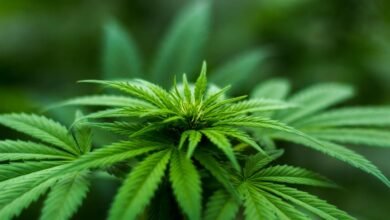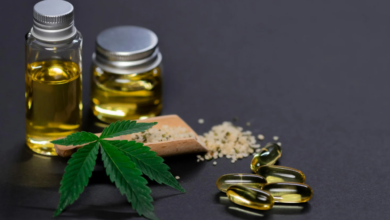What Is CBD?

Cannabidiol (CBD) is a compound extracted from the cannabis plant, distinct from THC. Unlike THC, CBD does not induce psychoactive effects. Its interaction with the endocannabinoid system suggests a role in regulating essential bodily functions. As interest in natural wellness grows, many are exploring the potential benefits of CBD. However, questions remain regarding its efficacy and legal status across different regions, prompting further examination of this multifaceted compound.
The Origins of CBD
Cannabidiol, commonly known as CBD, has its roots in ancient practices of herbal medicine, where various cultures utilized cannabis for its therapeutic properties.
The cbd history traces back thousands of years, with evidence of cannabis cultivation found in regions like China and India.
As societies evolved, the understanding of CBD's benefits expanded, paving the way for its modern resurgence in holistic health practices.
How CBD Works in the Body
Understanding how CBD works in the body involves exploring its interaction with the endocannabinoid system (ECS), a complex network of receptors and neurotransmitters that regulates various physiological processes.
CBD primarily interacts with cbd receptors, influencing the ECS to maintain homeostasis. This interaction can modulate pain, mood, and immune responses, highlighting CBD's potential role in promoting overall well-being and balance within the body.
Potential Benefits of CBD
The interaction of CBD with the endocannabinoid system suggests a range of potential benefits that have garnered significant interest in both scientific research and public discourse.
Notably, CBD has been linked to pain relief, providing a natural alternative for those seeking effective management of discomfort.
Additionally, its properties may contribute to anxiety reduction, promoting a sense of calm and well-being for users.
Legal Status of CBD in Various Regions
As the popularity of CBD continues to grow, its legal status varies significantly across different regions, reflecting a complex interplay of local regulations and cultural attitudes toward cannabis-derived products.
In some areas, CBD legality is well-defined, allowing for widespread access, while others impose strict CBD regulations, limiting its use.
Individuals seeking freedom in accessing CBD must navigate these varied legal landscapes carefully.
Conclusion
In conclusion, CBD stands out as a promising natural remedy that harnesses the body's endocannabinoid system for potential health benefits. While some may question its efficacy due to the lack of extensive research, emerging studies and anecdotal evidence suggest that many individuals experience positive outcomes. As regulations evolve and scientific exploration continues, CBD's role in holistic wellness is becoming increasingly recognized, making it a compelling option for those seeking alternative therapeutic solutions.






